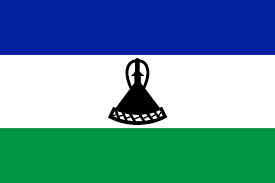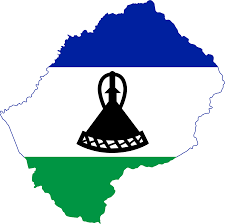Week #2: Lesotho Ethics Case – Blog #2 Fall 2021
Lesotho Ethics Case

Step 1: The Facts.
- Bringing 10 researchers to Lesotho in Southern Africa to conduct research
- Will travel throughout Lesotho for a 2 week duration to different communities
- Need to test their water source for a harmful pathogen
- Researchers need community members to show them locations of water sources and where and how to store the water
- Researchers will offer community participants a ride to water location site
- Researchers are expecting to publish
Ethical Issue(s):
- Is it ethical to ask for time and knowledge of locals without compensation for identifying water sources?
- Being present in the country for two weeks when they don’t know if they are welcome
- Would this set a precedent for other researchers to exploit locals in the name of conducting research?
Step 2: Stakeholders.
- Researchers (Primary Stakeholders)
- Locals (Primary Stakeholders)
- People in other areas that the pathogen is present (Secondary Stakeholders)
- Funding agency/university (Secondary Stakeholders)
Step 3: Motivation of Stakeholders.
- Researchers
- Personal: Self esteem improvement and confidence in their own knowledge, notoriety and respect in general; boosted ego to have been part of a team that solved an issue to meet basic needs of a significant population
- Professional: Paper publications increase their chances for promotion, and will lead to other academics in this area to respect them more
- Locals
- Personal: access to safe drinking water, recognition from other locals for being part of the “research team”
- Professional: may lose money if this time takes away from work.
- People in other areas that the pathogen is present
- Personal: access to safe drinking water, the research may reduce costs burdens for other areas as they can uptake found knowledge from the experiment of the case study
- Professional: Networking possibility with those involved in this venture
- Funding agency/University
- Personal: This is a general body, not necessarily “personal” motive
- Professional: Increased exposure for the organization, Resulting high quality publications may lead to larger grants for the home organization. Prestige to have funded such an important and life-saving project.
Step 4: Alternative solutions.
Solution 1: Pay the locals to assist with the study.
- Ethical Principle/Code: Duty based
- Pros
- Locals are paid for their time and have a better quality of life
- Locals benefit directly from this partnership
- Paying the locals may increase interest in participation
- Recognize the value that locals provide and show respect for their time commitment
- Cons
- Could create some power dynamics if the payment method is inappropriate or too extravagant
- Costs more money
- May have too many people interested, have to turn away some causing conflict and negative emotions around the team from the community
Solution 2: Conduct research without the locals.
- Ethical Principle/Code: Utilitarianism
- Pros
- No locals need to lose work time or work money to participate anymore
- Researchers will get more hands-on experience locating and understanding the water.
- Cons
- No stakeholders within the community will be utilized hindering the community involvement needed for a more efficient study
- It might look bad when publishing studies that no community members will be contacted and look like a “drop in study” that is not benefiting the community.
- Study would be more challenging without the knowledge the locals provide related to the water source locations
- Data could be less comprehensive if water sources are missed without the knowledge of the locals
Solution 3: Collaborate with the National University of Lesotho to come up with a joint plan.
- Ethical Principle/Code:
- Pros
- Researchers can be more secure that their methods will be accepted by the locals
- The locals will likely be more comfortable with participating in the research
- More connections and partners on the ground are flourished as a positive consequence
- Cons
- This plan probably requires more time and engagement on the part of the researchers
- The original team may not have the funds to pay for this large of a partnership causing the team to readjust the budget and drop important items that could lower the rigor of the research.
Step 5: Additional assistance.
The group further discussed and identified a local university in Lesotho as a way to build credibility for the research team. Also, the addition of the local university would allow the research efforts related to the water study and skills developed by the locals to continue beyond the time the external research team is in the country.
Step 6: Best course of action!
I suggest that we do a combination of paying the locals and partner with a local university. Both actions are changes to the original play since additional dollars are needed for the compensation and additional time must be invested to establish a partnership with the local university. However, the additional funds and time are critical for the success of the project AND to design a research project that is most ethical. In determining pay, the team would need to enlist input from the local university to best determine what to offer for compensation and how to go about selecting the locals. As noted in our discussion, compensation can be a number of things (financial, goods, or training). The alternative to not use locals in the study in order to avoid paying them is short-sighted since they are a critical component of the design. Without the locals, the research team ability to collect the best data is significantly decreased.
Step 7: Implications of the solution.
The solution to both pay locals for their participation and involve the local university will have multiple impact on the venture.
- Technological~
- The technical parts of this study will require the use of technological instruments. Including locals will require the researcher team to plan for time to train them on how to correctly use the tools and collect water samples. Additionally, the research team will need to plan to have sufficient instruments for the larger team – both for the training and actual sample collection.
- Social ~
- The blending of an external team along with local representatives (residents and the university) will impact the learning experience beyond the information learned from collecting data. All participants have knowledge/expertise/experience to offer the others, which will impact how everyone walks away from the experience – grown both academically and personally.
- Economic ~
- The decision to pay locals (in a mode to be determined) will have a direct impact in the lives of those individuals and their immediate household! Additionally, the inclusion of the local university will create a possible path for the locals to continue on the path of learning/research/work.
- Environmental ~
- Again, the decision to include both locals and a local university will have a direct impact on the study by helping provide the best scenario to collect comprehensive data and sustainability for ongoing research. The ultimate goal of the research is to develop chemical additives that make the water safe to drink – this is the biggest impact on the environment we can hope for as a result of combining our research team with locals in Lesotho and a local university!
